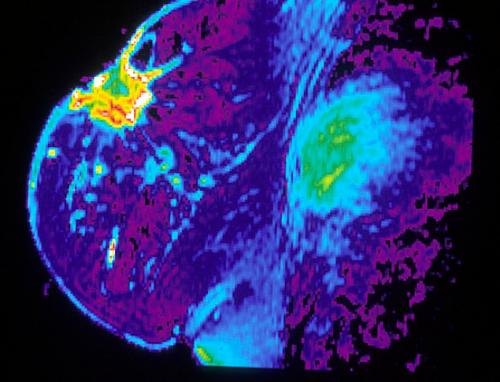New risk gene discovery gives hope to early-onset breast cancer sufferers

A new breast cancer risk gene has been discovered which explains the early-onset breast cancer in some multiple-case breast cancer families.
The international team of investigators led by the University of Melbourne Australia, identified rare mutations in the RINT1 gene to increase risk of breast and many other cancers.
Professor Melissa Southey and Dr Daniel Park from the University's Department of Pathology presented the research today at the American Society of Human Genetics 2013 annual meeting in Boston.
Other researchers in this international team are from the Institute Curie in Paris, the International Agency for Research on Cancer in Lyon, France, and the Huntsman Cancer Institute in Salt Lake City, Utah.
Professor Southey said "this discovery will assist some more women learn the genetic explanation for their breast cancer risk and which of their family members are at high risk of developing cancer. Currently only about 35 per cent of the familial risk for breast cancer has been explained."
Co-researcher Dr Park, Senior Research Fellow said "although mutations in RINT1 are rare, it is most likely that the remaining unknown breast cancer susceptibility genes will account for similar small proportions of the disease."
Rare mutations in RINT1 were identified in three of 49 families participating in a multiple-case breast cancer family study. The study applied the latest technology to search for unidentified breast cancer susceptibility genes.
The researchers then assessed the association between RINT1 mutations and breast cancer risk by conducting a population-based case-control study that identified 23 mutation carriers in a sample of 1,313 women diagnosed with early-onset breast cancer and only 6 mutation carriers in 1,123 unaffected women, demonstrating a significant association between mutations in RINT1 and risk of early onset breast cancer.
Further research included testing an additional 684 affected women from multiple-case breast cancer families for RINT1 mutations and six additional families were found to carry mutations in RINT1.
This demonstration of RINT1 as a cancer susceptibility gene is consistent with prior literature that has described mice that carry a rint1 mutation spontaneously develop a variety of tumors including breast cancer, at a combined rate of 81 per cent, higher than the rate at which breast cancer spontaneously develops in laboratory mice that have a brca1 mutation.
















